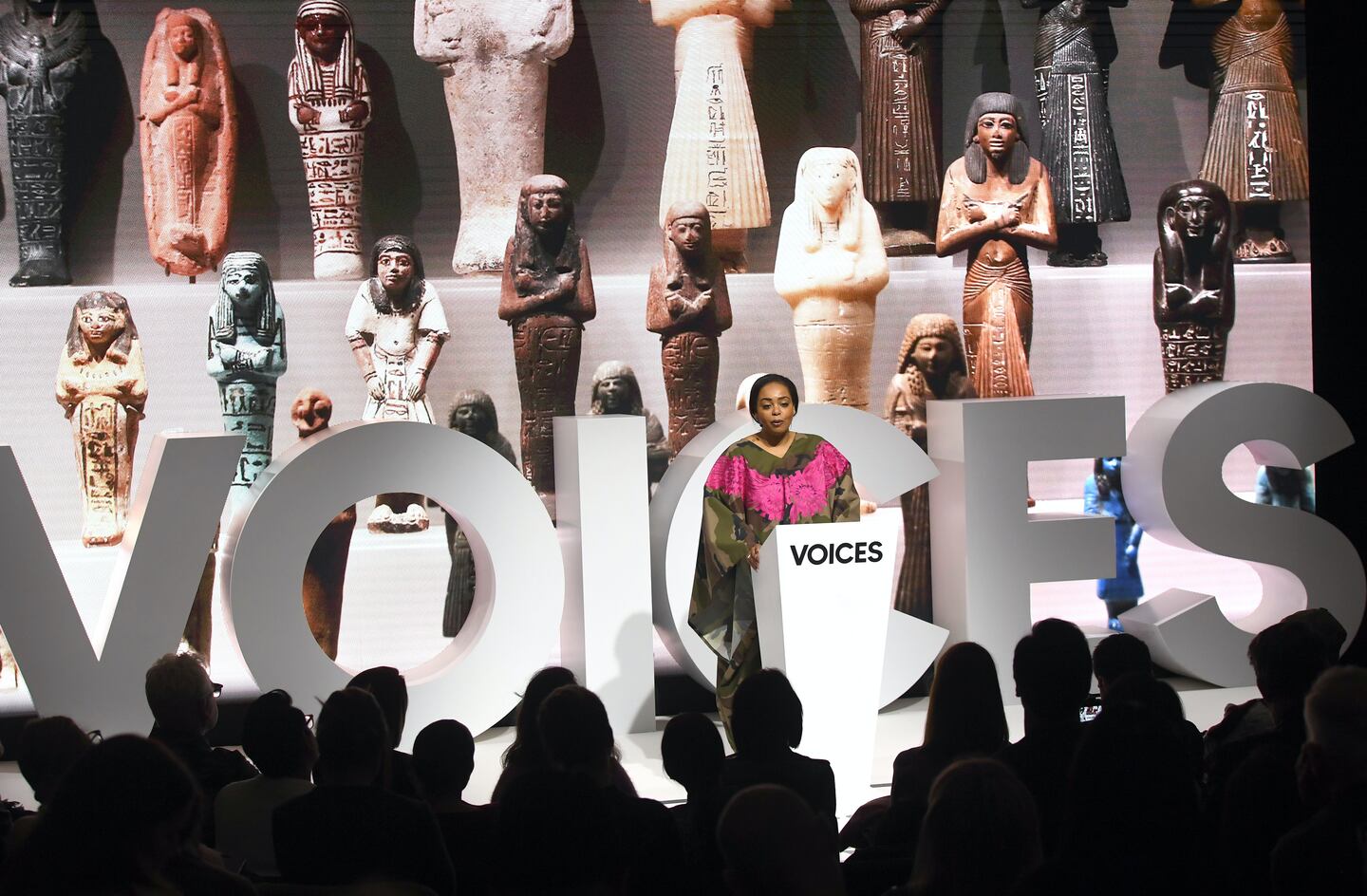
The Business of Fashion
Agenda-setting intelligence, analysis and advice for the global fashion community.

Agenda-setting intelligence, analysis and advice for the global fashion community.

OXFORDSHIRE, United Kingdom — Rozan Ahmed is a product of her “natural and nurtured DNA.” A London upbringing, Muslim identity and Arabic tongue have helped shape the activist into who she is today. But on stage at BoF VOICES, Sudanese Ahmed focused on re-introducing the room to her greatest influence and “mother,” Africa.
The continent, its 54 incredibly diverse countries and over 1.3 billion people have long been “singularly promoted” as “poverty-stricken and violent...forever in this ‘third world’ imposition of a position, in constant need of outside help,” Ahmed said. In her role as the founder of The Magic Drive — which works to creatively empower orphans and other children in Kenya and beyond — Ahmed has been confronted with the fact that these assumptions and generalisations also pervade the continent’s creatives and their work.
Africa's pain doesn't ask for pity… because its pain has not debilitated its power, its God-given strength, or its potential.
Indeed, Africa is no stranger to poverty, war or many other painful consequences of its colonial past that have impacted its culture and identity. But Ahmed said that “[Africa’s] pain doesn’t ask for pity… because [its] pain has not debilitated [its] power, [its] God-given strength, or [its] potential.” She also underscored its progress.
First, this necessitates the wider world’s acknowledgement of the fact that Africa’s “rich cultural assets have influenced and enriched a global hegemony in every area of life.” Ahmed argued that “there is nothing emerging about Africa’s wealth,” nor its film, music, art, fashion and luxury industries, whose recent triumphs are evidence that the continent isn’t awakening but “at a stage of rooted comeback.”
ADVERTISEMENT
Looking to the future, Ahmed noted that Africa’s megacities host a large number of fashion weeks; Sub-saharan Africa will boast more working-age people than the rest of the world combined by 2035, according to the IMF.
Yet obstacles await — she added that investment in African creatives is insufficient and a failure of governments and others to adequately protect intellectual property rights have further stripped the continent’s residents and diaspora of much-needed support. Ultimately, Africa’s cultural comeback cannot be sustained without “reimagining, dismantling, abolishing, feeling, healing, and...listening” to its creatives.
“A growing gaze is one thing,” Ahmed said. “Benefit is quite the other.”
To learn more about VOICES, BoF’s annual gathering for big thinkers, visit our VOICES website, where you can find all the details on our invitation-only global gathering.
This week’s round-up of global markets fashion business news also features Latin American mall giants, Nigerian craft entrepreneurs and the mixed picture of China’s luxury market.
Resourceful leaders are turning to creative contingency plans in the face of a national energy crisis, crumbling infrastructure, economic stagnation and social unrest.
This week’s round-up of global markets fashion business news also features the China Duty Free Group, Uniqlo’s Japanese owner and a pan-African e-commerce platform in Côte d’Ivoire.
Affluent members of the Indian diaspora are underserved by fashion retailers, but dedicated e-commerce sites are not a silver bullet for Indian designers aiming to reach them.